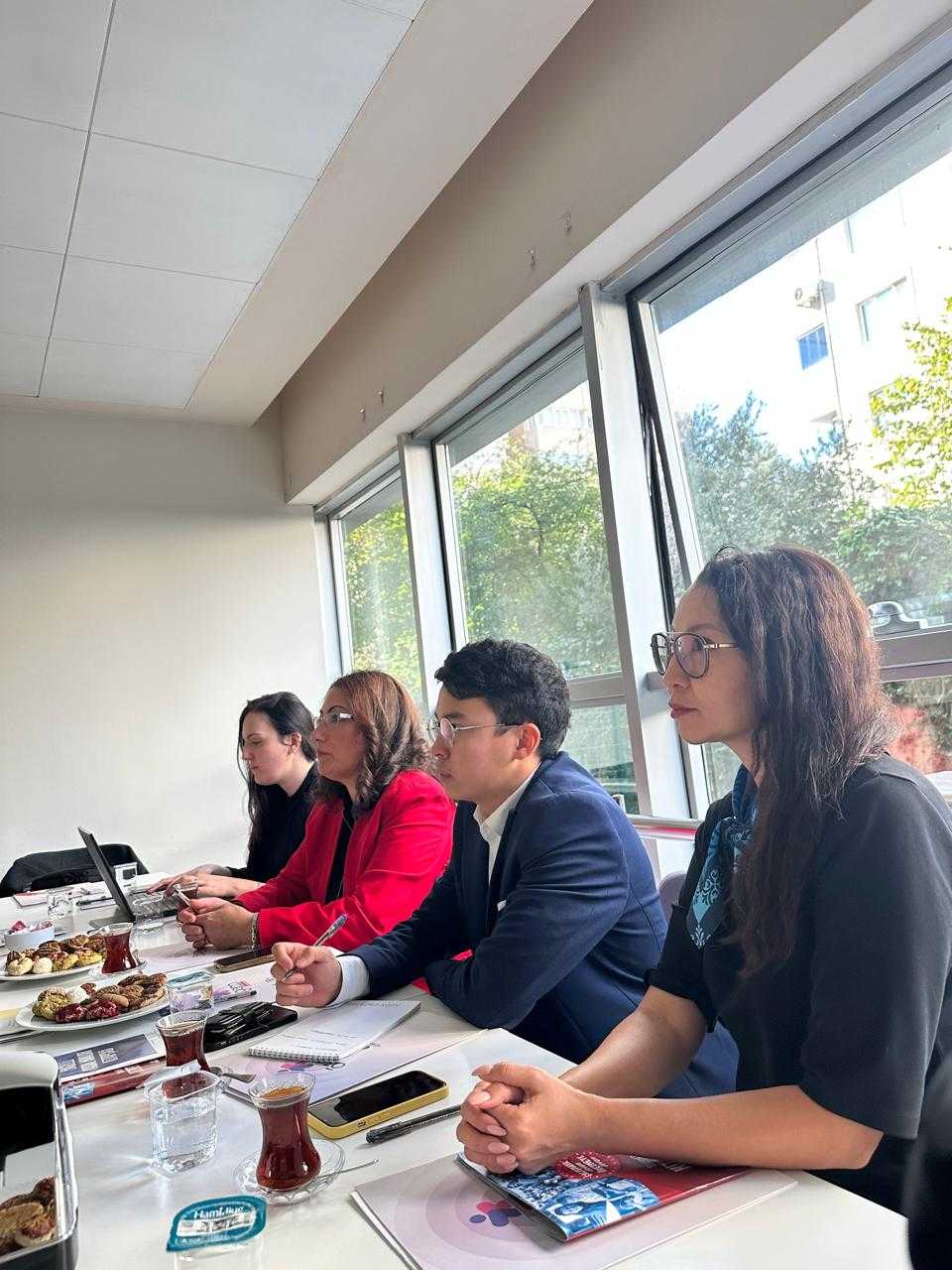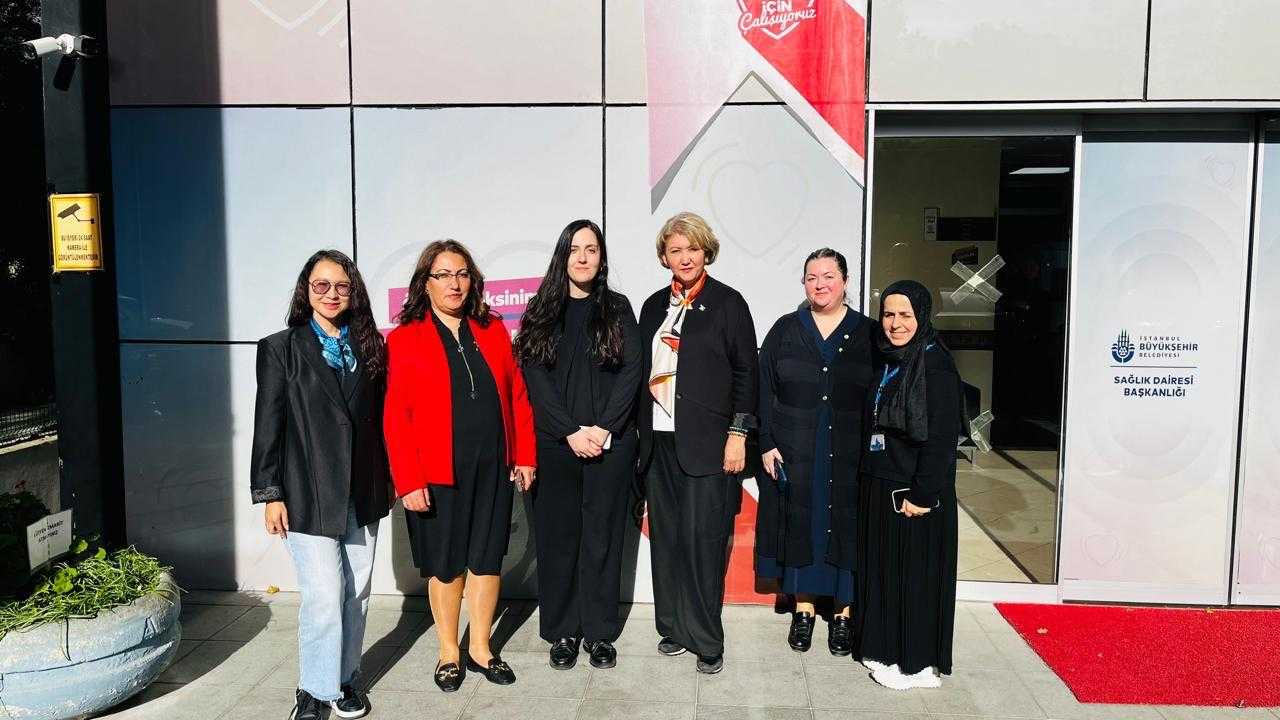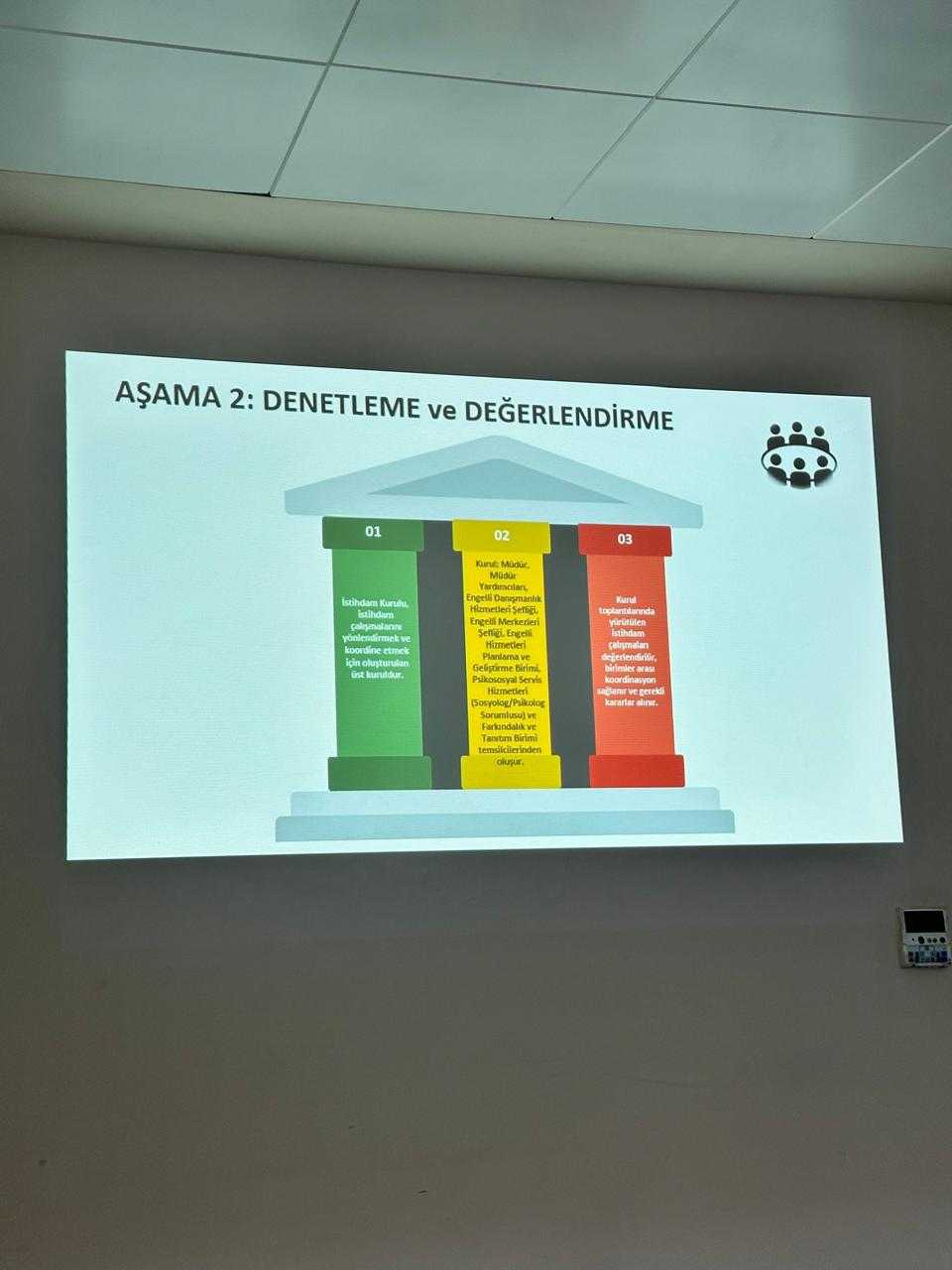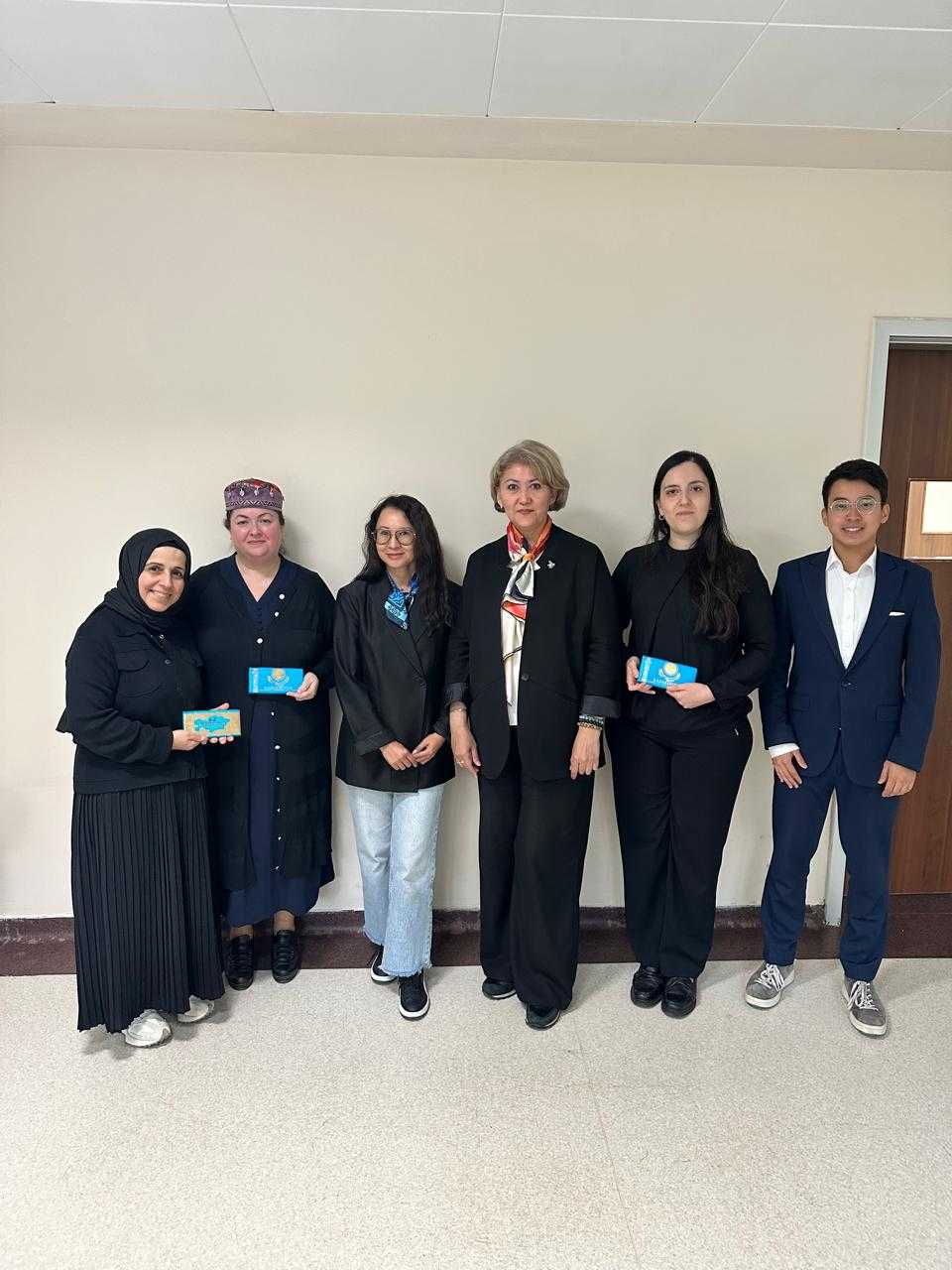As part of the GF project “Integration
of Persons with Disabilities into the Labor Market: Development of a
Comprehensive Labor Adaptation Program”, the working group represented by
Professor Z.K. Smagulova and Associate Professor S.T. Okutayeva visited the
Department of Services for People with Disabilities of the Istanbul
Metropolitan Municipality (Turkey).
In Turkey, the state body officially
responsible for the employment of people with disabilities is the Labor Agency
under the Ministry of Labor and Social Security. The agency is responsible for
registering candidates, matching them with vacancies, directing them to
employment, providing job coaching, support, quota control, and monitoring
employment outcomes. The employment process includes submitting an application,
professional counseling, company analysis, field visits by specialists,
collecting information on employers’ needs, preparing résumés with the
involvement of psychologists, opening necessary vocational training courses,
and organizing interviews when a suitable vacancy is available. After
employment, İŞKUR conducts monitoring and implements activities aimed at
raising awareness among employers and employees. Companies receive disability
awareness seminars, which foster an inclusive work environment and improve
communication within teams. Particular attention is paid to psychological,
professional, and social support, which helps reduce stress and facilitates the
employment process.
According to the İŞKUR report “Labor
Market Study - Istanbul Province”, out of 31,828
enterprises, 10,758 employ people with disabilities, while employer bias
remains a significant barrier to employment. Based on the Annual Report of the
Istanbul Provincial Employment and Vocational Training Committee, in 2024, a
total of 9,887 people with disabilities were employed, including 2,372 women
and 7,515 men. The national data system registers 2,511,950 people with
disabilities: 1,414,643 men and 1,097,307 women. These figures highlight the
scale of the challenge and the importance of strengthening mechanisms for
supporting and adapting people with disabilities in the labor market.
The experience gained during the trip and
the study of İŞKUR’s activities in Istanbul demonstrates the importance of a
systematic and comprehensive approach to supporting people with disabilities on
their path to employment. The Turkish model shows that sustainable results are
achieved only when state institutions have clearly defined responsibilities and
employment processes are structured sequentially-from initial registration and professional assessment to training,
job matching, job coaching, and continuous monitoring. Particularly valuable
was the understanding of the role of interdisciplinary collaboration:
psychologists, sociologists, employment specialists, and employers create an
integrated support system that reduces barriers and increases the chances of
successful professional integration for people with disabilities.
An important conclusion is that even with
a developed institutional framework, social attitudes and employers’ prejudices
remain a key obstacle. Therefore, activities such as awareness seminars and
efforts to improve corporate culture are essential parts of the overall
process. İŞKUR’s statistical data confirm the effectiveness of a systematic
approach and emphasize the need to continue strengthening opportunities and
increasing inclusivity in the labor market. This experience has become a
significant example for adapting best practices within our project and has
helped deepen our understanding of which mechanisms can be most effective in
developing a comprehensive labor adaptation program for people with
disabilities.



